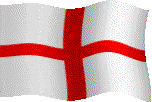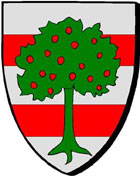Encyclopédie Marikavel-Jean-Claude-EVEN/Encyclopaedia/Enciclopedia/Enzyklopädie/egkuklopaideia

England Bro Saoz |
Brougham Brocavum |

Westmorland |
page ouverte le 22.04.2004 |
|
forum de discussion
* forum du site Marikavel : Academia Celtica |
dernière mise à jour 22/06/2012 11:12:20 |
![]()
| Définition : ville d'Angleterre; comté de Westmoreland. Ancien établissement romain *Brocavum. |
|
![]()
|
Extrait de la carte Ordnance Survey : Map of Roman Britain. |
![]()
Histoire : |
![]()
| Étymologie :
* Rivet & Smith : - Itinéraire d'Antonin, 476-5 (Ite V) : BROCAVO. * Bruham, 1130; Bruham, 1228; Burgham, 1362 : homestead near the fortification = établissement près des fortifications. le premier élément de Brougham ne peut provenir de Broc-. ---------------- SOURCE DERIVATION. This must be taken together with the next name, Brocolitia, with Brocomagus (AI, Ammianus, TP, etc) > Brumath (Bas-Rhin, France), perhaps with Brocaria (later Brogaria) > Bruyères-le-Châtel (Seine-et-Oise, France), and the widespread personal names Broccus, Brochus, Broccius, Brocina, and Brocomaglos. For Brocavum of AI Jackson in Britannia, I (1970), 69, suggests an origin in British *brocco- `badger', *Broccâuon being `place of badgers'; and Williams favours the presence of badgers in Brocolitia. There is nothing impossible in this; *brocco- has left derivatives in this sense in all the Celtic languages, e.g. Welsh and Cornish broch, Breton broc'h, Irish broc. The word passed into late Latin and has left various descendants; there is also English brock, either from Celtic or via Romance. However, `badger-place' for Brocavum and '(place) infested by badgers' for Brocolitia, and other badger associations for the Continental places and the personal names listed above, are not very logical. The animal is rarely present in numbers, and seems to have few folkloric associations; it is nocturnal by habit and hardly comes to notice. We seem to have no other British names which we can say with certainty are based on those of wild animals (Bibra comes closest). In all England Ekwall lists no badger-names, only two with brock (and two other probables), and such naming is rare abroad. It is therefore best to regard the sense `badger' as secondary and turn to the notion which underlies it. Latin has broccus `pointed', used especially of the teeth, e.g. dentes brocc[h]i in Varro II, R. R. 7, 3, a word seemingly borrowed from Gaulish or cognate with a Celtic root (Pokorny 108, Whatmough DAG 444-45). The badger as *brocco-, then, is `he with the pointed teeth', and persons named Broccus, Brochus, etc., are `toothy, having protruding teeth'. Dauzat TF 217 is of the same mind : of *brocco-` badger' he says that `le sens primitif paraît avoir été "pointe" (cf. français broche). Le sens topographique paraît être "éperon de montagne" (le mot a signifié "épine" au Moyen Age).' A sense for *broc-, then, in the British and other place-names, of `pointed rock, sharp peak' or the like, seems probable. A further, more attractive possibility for the place-names (but not the personal names) is that which involves a British version of Celtic *uroica *Uroico-` heather' (Holder Ill. 454; Welsh grug, Cornish grig, Breton brug; Old Irish froech glossed `brucus'). In late Latin (from Gaulish) one finds brûca brûcus, the Romance bruc- (Old Provençal bruc, Catalan bruch, Spanish broza `dead leaves, brushwood' and dialectal bruza `heather'); with suffix, *bruc(g)aria > French bruyère. See L.-F. Flutre in RIO, VIII (1956), 28o-81; J. Hubschmid in ELH 1.142. P. Aebischer in RC, XLVIII (1931), 312-24, studied the name Vroica, a deity, on an inscription of Rognes (Bouches-du-Rhône, France), relating this to `heather' and seeing it as the original name of two streams now called Broye in Vaud Canton (Switzerland). This, we can now see, is the first element in Brocomagus, the Latin version of *Uroico-magos `heather-plain', with which O'Rahilly EIHM 534 equates Irish Fraechmag, while in Gaul Brocaria > Brogaria > Bruyères(-le-Châtel) is clearly another `heather'-name also. Moreover, in one record, that of Ptolemy II,9,9, Brocomagus is Breukomagos (= Breucomagos), a representation of an earlier stage of the vowel development; and in CIL XIII. 9097 the same name is Vro(comagus). It was natural that the awkward group *uroshould be represented as Bro- in Latin, bath in speech and in writing; however, one does exceptionally find a Latin initial V-, in Vrocatae (genitive or dative), a graffito on a cooking-pot of the early fourth century used as a cremation-urn at Beckfoot (JRS, XLIII (1953), 131), this of course being a *broc- `toothy' personal name. See also VIROCONIUM in part. As for the vowels, original -oi- diphthong proceeded via o to u in the second and third centuries (while -au-, -ou- and -eu- became -o- in the late first century ` at least in part'-Jackson LHEB 313-4, and this -o- also > -u- by the end of the third Century); so there is no problem in regarding our two Broc- names as fairly representing, in Latin guise, original British *uroico- `heather'. The root has *-auo- suffix (compare ABALLAVA) of derivation. The sense `heathery place' cannot be absolutely affirmed, but seems natural, especially in view of the topography of the present place and of the next. IDENTIFICATION. The Roman fort at Brougham, Westmorland (NY 5328). Note. Although the stages are not clear, there is no reason why modem Brougham should not derive .from Brocavum. There are early forms: EPNS XLIII, 128, gives the first recorded instance of the modem name as Bruham (II30), then Bruham (1228) and Burgham (I362), explaining this as Prabably a metathesised fortn of Anglo-Saxon Burh-ham `homestead near the fortification'. For good measure there is appended the note: `It may be added that the first element of Brougham cannot be derived from Brocavum, as with lenition that would have given Brog- for which Old English would have substituted Broc-.' No doubt this is so, but it takes no account of possible disturbances of the phonological rules by analogy, hypercorrection, assimilation to related words, and so on. In the absence of records over so many centuries one cannot guess at the process, but the fact remains that the Bru- forms of 1130 and 1228 very strongly recall Celto-Latin Bro-, and that Burg-ham of 1362 could be a mere Germanic rationalisation into commonly used elements, as often. It seems rash to dismiss the possibility .that the old name survived. ---------------- Essai d'explication : - peut-être de la racine *brocco- = blaireau ( = le camp du blaireau) - peut-être de la racine *broc > français broche : le camp situé sur l'éperon / pointe rocheuse. - peut-être *uroico- > breton brug = bruyère ( = le camp situé dans les bruyères). ***** * Eilert Ekwall : Bruham 1228 Pat; Burgham 1362 Cl. Du Vieil anglais Burg-ham; "le village situé près du fort. Le burg (en question) est la station romaine Brocavum". |
![]()
| Sources :
- Eilert Ekwall : The Concise Oxford Dictionary of English place-names. Clarendon Press. fourth edition, 1980. - Ordnance Survey : Map of Roman Britain. - ALF Rivet & Colin Smith : The Place-Names of Roman Britain. Batsford Ltd. London. 1979. |
![]()
|
hast buan, ma mignonig go fast, my little friend |
![]()